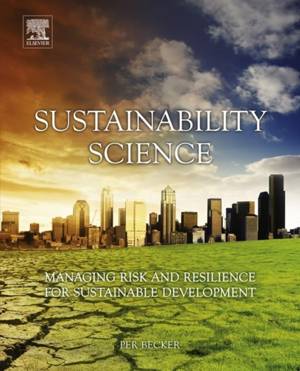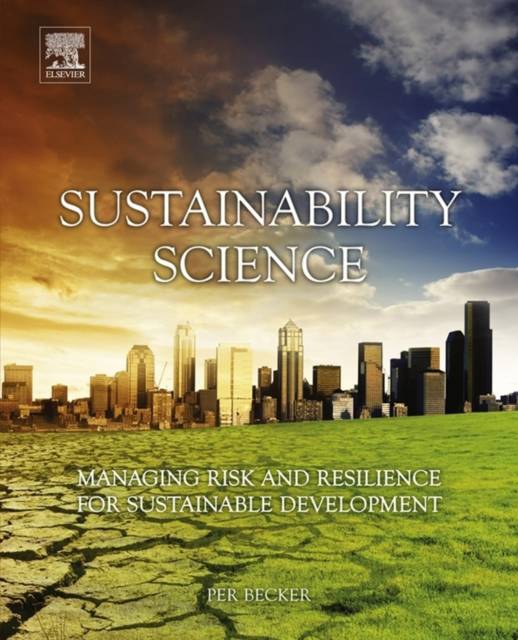
- Retrait gratuit dans votre magasin Club
- 7.000.000 titres dans notre catalogue
- Payer en toute sécurité
- Toujours un magasin près de chez vous
- Retrait gratuit dans votre magasin Club
- 7.000.0000 titres dans notre catalogue
- Payer en toute sécurité
- Toujours un magasin près de chez vous
Sustainability Science
Managing Risk and Resilience for Sustainable Development
Per BeckerDescription
A new, holistic transdisciplinary endeavour born in the 21st century, Sustainability Science: Managing Risk and Resilience for Sustainable Development aims to provide conceptual and practical approaches to sustainable development that help us to grasp and address uncertainty, complexity, ambiguity and dynamic change. Four aspects that permeate our contemporary world and undermine much of our traditional ways of thinking and doing. The concepts of risk and resilience are central in this endeavour to explain, understand and improve core challenges of humankind.
Sustainability and sustainable development are increasingly important guiding principles across administrative levels, functional sectors and scientific disciplines. Policymakers, practitioners and academics continue to wrestle with the complexity of risk, resilience and sustainability, but because of the necessary transdisciplinary focus, it is difficult to find authoritative content in a single source.
Sustainability Science:
Managing Risk and Resilience for Sustainable Development presents the state of the world in relation to major sustainability challenges and their symptomatic effects, such as climate change, environmental degradation, poverty, disease and disasters. It then continues by elaborating on ways to approach and change our world to make it a safer and more sustainable place for current and future generations. The natural, applied and social sciences are woven together throughout the book to provide a more inclusive understanding of relevant processes, changes, trends and events.Spécifications
Parties prenantes
- Auteur(s) :
- Editeur:
Contenu
- Nombre de pages :
- 302
- Langue:
- Anglais
Caractéristiques
- EAN:
- 9780444627094
- Date de parution :
- 26-08-14
- Format:
- Livre relié
- Format numérique:
- Genaaid
- Dimensions :
- 190 mm x 239 mm
- Poids :
- 839 g

Les avis
Nous publions uniquement les avis qui respectent les conditions requises. Consultez nos conditions pour les avis.






